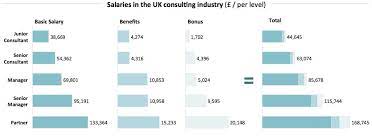Understanding the Crucial Role of Target Market Analysis in Online Business Success
The Importance of Identifying Your Target Market for Your Online Business
When starting an online business, one of the key factors that can contribute to its success is understanding and defining your target market. Your target market consists of the specific group of people who are most likely to be interested in your products or services. By identifying and focusing on your target market, you can tailor your marketing strategies and offerings to better meet their needs and preferences.
Why Define Your Target Market?
Defining your target market is essential for several reasons:
- Effective Marketing: Knowing who your target market is allows you to create targeted marketing campaigns that resonate with them, increasing the likelihood of attracting and retaining customers.
- Product Development: Understanding your target market’s preferences and pain points can help you develop products or services that address their specific needs, leading to higher satisfaction and loyalty.
- Competitive Advantage: By focusing on a niche market segment, you can differentiate yourself from competitors and position your business as a specialist in catering to that particular audience.
How to Identify Your Target Market
To identify your target market, consider the following factors:
- Demographics: Age, gender, income level, education, occupation, etc.
- Psychographics: Values, interests, lifestyles, attitudes, etc.
- Behavioural Factors: Buying habits, usage patterns, brand loyalty, etc.
- Geographic Location: Where your target customers are located geographically.
The Benefits of Knowing Your Target Market
By understanding your target market, you can tailor your website content, product offerings, pricing strategies, and promotional activities to better appeal to their preferences. This targeted approach can lead to increased customer engagement, higher conversion rates, and ultimately improved business performance.
In conclusion, identifying and understanding your target market is crucial for the success of your online business. By focusing on serving the specific needs of a well-defined audience segment, you can position your business for growth and long-term sustainability in the competitive online marketplace.
Nine Advantages of Targeting the Right Market for Online Business Success
- 1. Enhanced marketing effectiveness through targeted campaigns.
- 2. Improved product development by addressing specific customer needs.
- 3. Competitive advantage by focusing on niche market segments.
- 4. Higher customer satisfaction and loyalty through tailored offerings.
- 5. Increased brand awareness among the right audience.
- 6. Better understanding of customer preferences and behaviours.
- 7. More efficient allocation of resources for marketing initiatives.
- 8. Enhanced communication with customers leading to stronger relationships.
- 9. Higher conversion rates and improved business performance.
Challenges of Narrow Target Market Focus for Online Businesses
- Limitation of potential customers to a specific segment may result in missed opportunities from other market segments.
- Over-reliance on a narrow target market can make the business vulnerable to shifts in consumer preferences or economic conditions.
- Targeting a specific market may lead to increased competition within that segment, making it challenging to stand out.
- Focusing solely on the target market may hinder innovation and limit the exploration of new business opportunities.
- Changing dynamics or trends within the target market can require frequent adjustments to marketing strategies and product offerings.
- Inaccurate identification of the target market can result in ineffective marketing efforts and wasted resources.
1. Enhanced marketing effectiveness through targeted campaigns.
One significant advantage of defining a target market for an online business is the enhanced marketing effectiveness achieved through targeted campaigns. By identifying and understanding the specific group of people who are most likely to be interested in your products or services, you can tailor your marketing efforts to resonate with their needs and preferences. This targeted approach allows you to create personalised messages and promotions that are more likely to capture the attention of your target audience, leading to higher engagement, conversion rates, and overall marketing success. Ultimately, focusing on a well-defined target market enables you to maximise the impact of your marketing strategies and reach the right customers with the right message at the right time.
2. Improved product development by addressing specific customer needs.
One significant advantage of defining a target market for an online business is the opportunity for improved product development by addressing specific customer needs. By understanding the preferences, pain points, and desires of the target market, businesses can tailor their products or services to meet these specific requirements effectively. This customer-centric approach not only enhances customer satisfaction but also fosters loyalty and repeat business as customers feel that their needs are being met in a meaningful way. Ultimately, addressing specific customer needs through targeted product development can lead to a competitive edge in the online marketplace and drive long-term success for the business.
3. Competitive advantage by focusing on niche market segments.
Focusing on niche market segments provides online businesses with a competitive advantage by allowing them to differentiate themselves from broader competitors. By catering specifically to the needs and preferences of a niche audience, businesses can position themselves as experts in serving that particular market segment. This specialized approach not only helps in building brand loyalty but also enhances customer trust and satisfaction, ultimately leading to a stronger market presence and increased competitiveness in the online business landscape.
4. Higher customer satisfaction and loyalty through tailored offerings.
By defining and focusing on a specific target market for your online business, you can create tailored offerings that cater to the unique preferences and needs of your customers. This personalised approach leads to higher customer satisfaction as individuals feel that your products or services are designed specifically for them. By consistently delivering value and addressing their specific requirements, you can build strong relationships with your target market, fostering loyalty and repeat business. Ultimately, by understanding and catering to the preferences of your target market, you can enhance customer satisfaction and loyalty, driving long-term success for your online business.
5. Increased brand awareness among the right audience.
By defining and targeting a specific market segment for an online business, one significant advantage is the increased brand awareness among the right audience. By tailoring marketing efforts and content to resonate with the identified target market, businesses can effectively reach and engage with those who are most likely to be interested in their products or services. This targeted approach not only helps in building a stronger connection with potential customers but also enhances brand visibility within the desired demographic, ultimately leading to improved brand recognition and loyalty among the right audience.
6. Better understanding of customer preferences and behaviours.
Having a well-defined target market for your online business provides the advantage of gaining a better understanding of customer preferences and behaviours. By identifying and focusing on a specific audience segment, businesses can gather valuable insights into what their customers like, dislike, and how they behave online. This knowledge allows businesses to tailor their products, services, and marketing strategies to align with customer preferences, leading to increased engagement, loyalty, and ultimately, improved business performance. Understanding customer preferences and behaviours enables businesses to create more personalised and targeted experiences that resonate with their audience effectively.
7. More efficient allocation of resources for marketing initiatives.
By defining a target market for an online business, companies can achieve a more efficient allocation of resources for marketing initiatives. By focusing on a specific group of potential customers who are most likely to be interested in their products or services, businesses can direct their marketing efforts towards reaching this audience effectively. This targeted approach helps in maximising the impact of marketing campaigns, ensuring that resources are utilised wisely to generate higher returns on investment. By understanding the preferences and behaviours of their target market, businesses can tailor their marketing strategies to resonate with this audience, leading to increased engagement and conversion rates.
8. Enhanced communication with customers leading to stronger relationships.
By defining and understanding your target market for an online business, you can enhance communication with customers, ultimately leading to stronger relationships. When you have a clear understanding of who your target audience is, you can tailor your messages and offerings to resonate with their needs and preferences. This targeted approach allows you to engage with customers more effectively, addressing their specific concerns and building trust over time. As a result, stronger relationships are formed, leading to increased customer loyalty and advocacy for your brand.
9. Higher conversion rates and improved business performance.
By identifying and understanding your target market for your online business, you can experience higher conversion rates and improved business performance. Targeting a specific audience allows you to tailor your marketing strategies and offerings to better meet their needs and preferences, increasing the likelihood of attracting and retaining customers. This targeted approach leads to more effective communication with potential buyers, resulting in a higher conversion rate of visitors into paying customers. Ultimately, by focusing on serving the specific needs of your target market, you can enhance your business performance and achieve sustainable growth in the competitive online landscape.
Limitation of potential customers to a specific segment may result in missed opportunities from other market segments.
One significant drawback of focusing on a specific target market for an online business is the potential limitation of reaching customers from other market segments. By narrowing the focus to a particular audience, businesses may inadvertently overlook opportunities to engage with and attract customers from diverse segments who could also benefit from their products or services. This narrow approach may result in missed opportunities for growth and expansion into untapped markets, potentially limiting the overall reach and impact of the business in the long run. It is essential for online businesses to strike a balance between targeting a specific market segment and remaining open to exploring opportunities in other segments to maximise their growth potential.
Over-reliance on a narrow target market can make the business vulnerable to shifts in consumer preferences or economic conditions.
An inherent con of solely focusing on a narrow target market for an online business is the risk of over-reliance, which can leave the business vulnerable to sudden shifts in consumer preferences or economic conditions. By narrowing the focus too much, the business may miss out on opportunities to diversify its customer base and adapt to changing market dynamics. This lack of flexibility could result in significant challenges if the target market experiences a downturn or if new trends emerge that are not aligned with the existing customer base. It is crucial for online businesses to strike a balance between catering to their core target market and remaining agile enough to adjust to external factors that may impact their sustainability and growth.
Targeting a specific market may lead to increased competition within that segment, making it challenging to stand out.
Targeting a specific market for an online business can have its drawbacks, one of which is the potential for increased competition within that segment. By focusing on a narrow target market, businesses may find themselves vying for attention and market share with other companies targeting the same audience. This heightened competition can make it challenging to differentiate oneself and stand out amidst similar offerings, requiring businesses to develop unique value propositions and innovative strategies to capture the attention of their target customers.
Focusing solely on the target market may hinder innovation and limit the exploration of new business opportunities.
Focusing solely on the target market for an online business can pose a significant con by potentially hindering innovation and restricting the exploration of new business opportunities. While understanding and catering to the needs of a specific target audience is crucial for success, exclusively concentrating on this group may lead to a narrow focus that overlooks emerging trends, untapped markets, or innovative ideas outside the established customer base. By rigidly adhering to the preferences of the target market, businesses risk missing out on potential growth avenues and limiting their ability to adapt to changing market dynamics. Balancing targeted strategies with a willingness to explore new possibilities is essential for fostering creativity, staying competitive, and seizing unforeseen opportunities in the ever-evolving online business landscape.
Changing dynamics or trends within the target market can require frequent adjustments to marketing strategies and product offerings.
One significant drawback of defining a target market for an online business is the need for constant adaptation to changing dynamics or trends within that market. As consumer preferences evolve and industry trends shift, businesses may find themselves needing to make frequent adjustments to their marketing strategies and product offerings in order to remain relevant and competitive. This ongoing need for flexibility and responsiveness can pose challenges in terms of resource allocation and strategic planning, requiring businesses to stay agile and proactive in order to effectively meet the evolving needs of their target market.
Inaccurate identification of the target market can result in ineffective marketing efforts and wasted resources.
An inherent drawback of inaccurately identifying the target market for an online business is the risk of ineffective marketing efforts and resource wastage. When a business fails to pinpoint its true target audience, its marketing strategies may miss the mark, leading to campaigns that do not resonate with the intended customers. This can result in a significant waste of time, money, and resources as promotional activities fail to generate the desired impact or engagement from the wrong audience segment. Ultimately, inaccurate identification of the target market can hinder a business’s ability to reach its potential customers effectively and efficiently.






